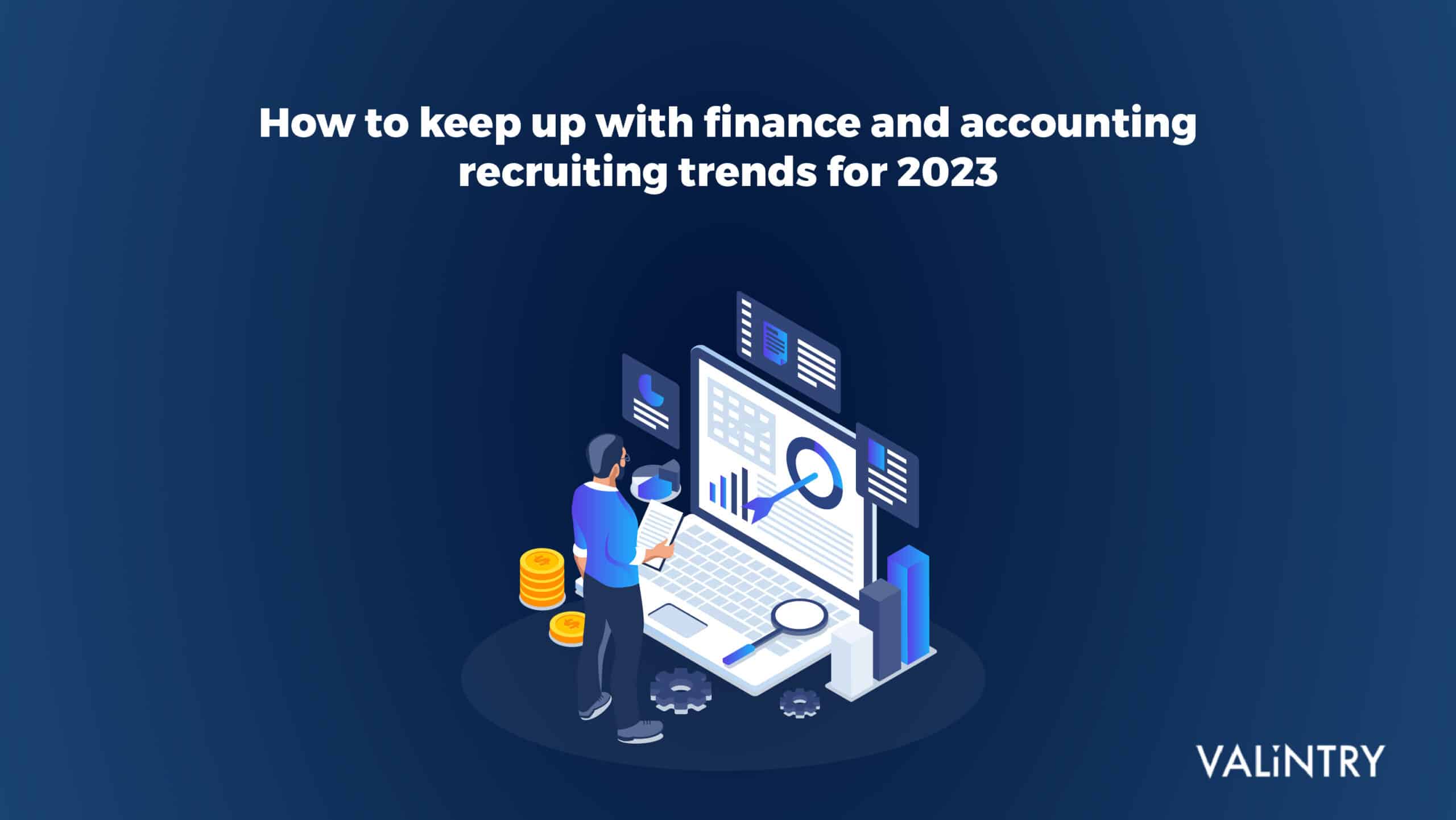
Top 5 Accounting & Finance Trends in 2023
1. Remote Workforce
2. AI & Automation
3. Big Data Combined With Analytics & Forecasting
4. Utilizing The Cloud
5. Diverse Range Of Skills
Table of Content
- Accounting and Finance Recruitment Trend 1: Remote Workforce
- Why the Remote Workforce Matters in Finance and Accounting
- Recruitment Strategies for a Remote Workforce
- Accounting and Finance Recruitment Trend 2: AI & Automation
- Accounting and Finance Recruitment Trend 3: Big Data Combined With Analytics & Forecasting
- Why Big Data Matters in Recruitment
- Accounting and Finance Recruitment Trend 4: Utilizing The Cloud
- Accounting and Finance Recruitment Trend 5: Diverse Range Of Skills
- Conclusion
Accounting and Finance Recruitment Trend 1: Remote Workforce
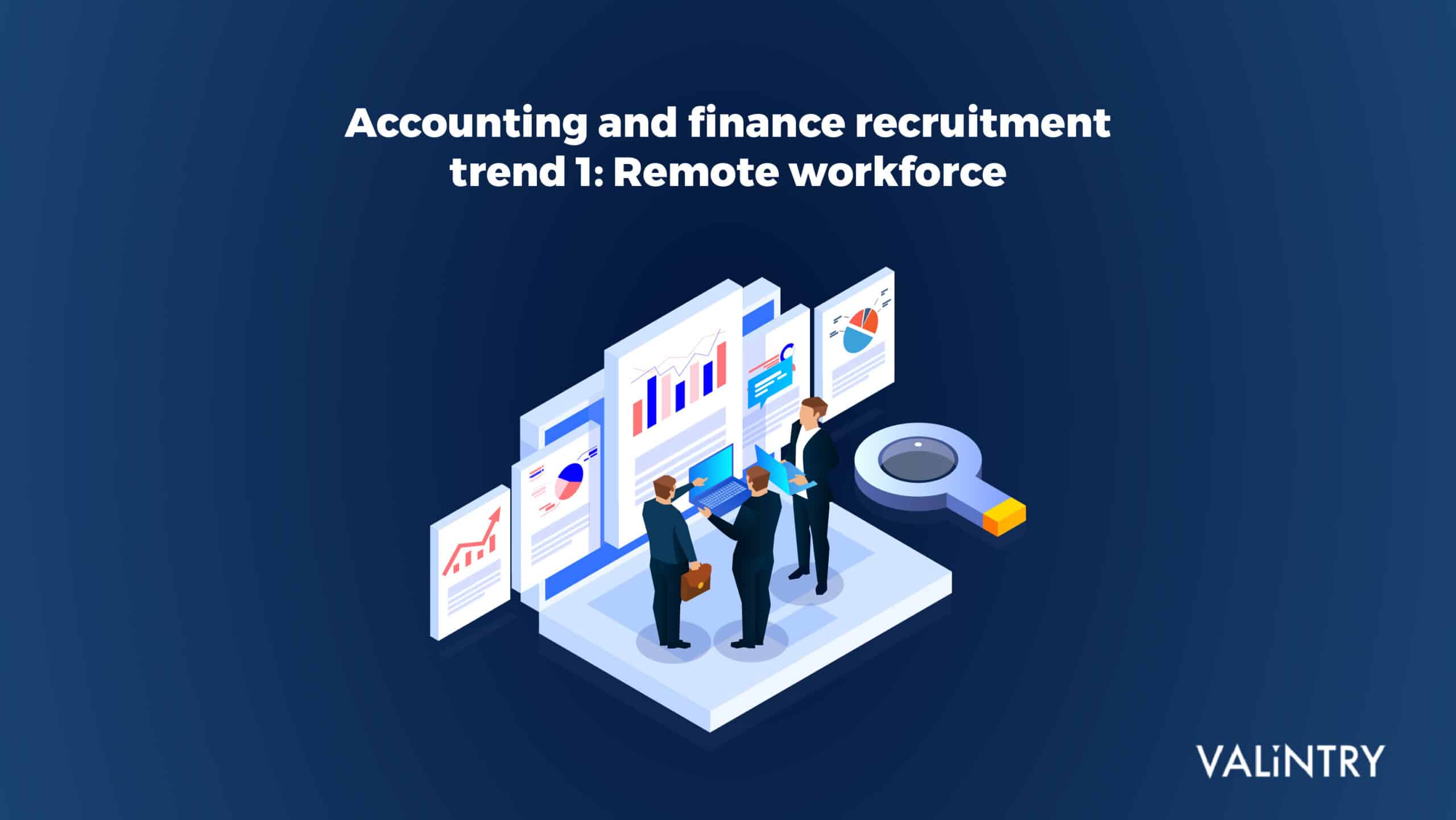
Why the Remote Workforce Matters in Finance and Accounting
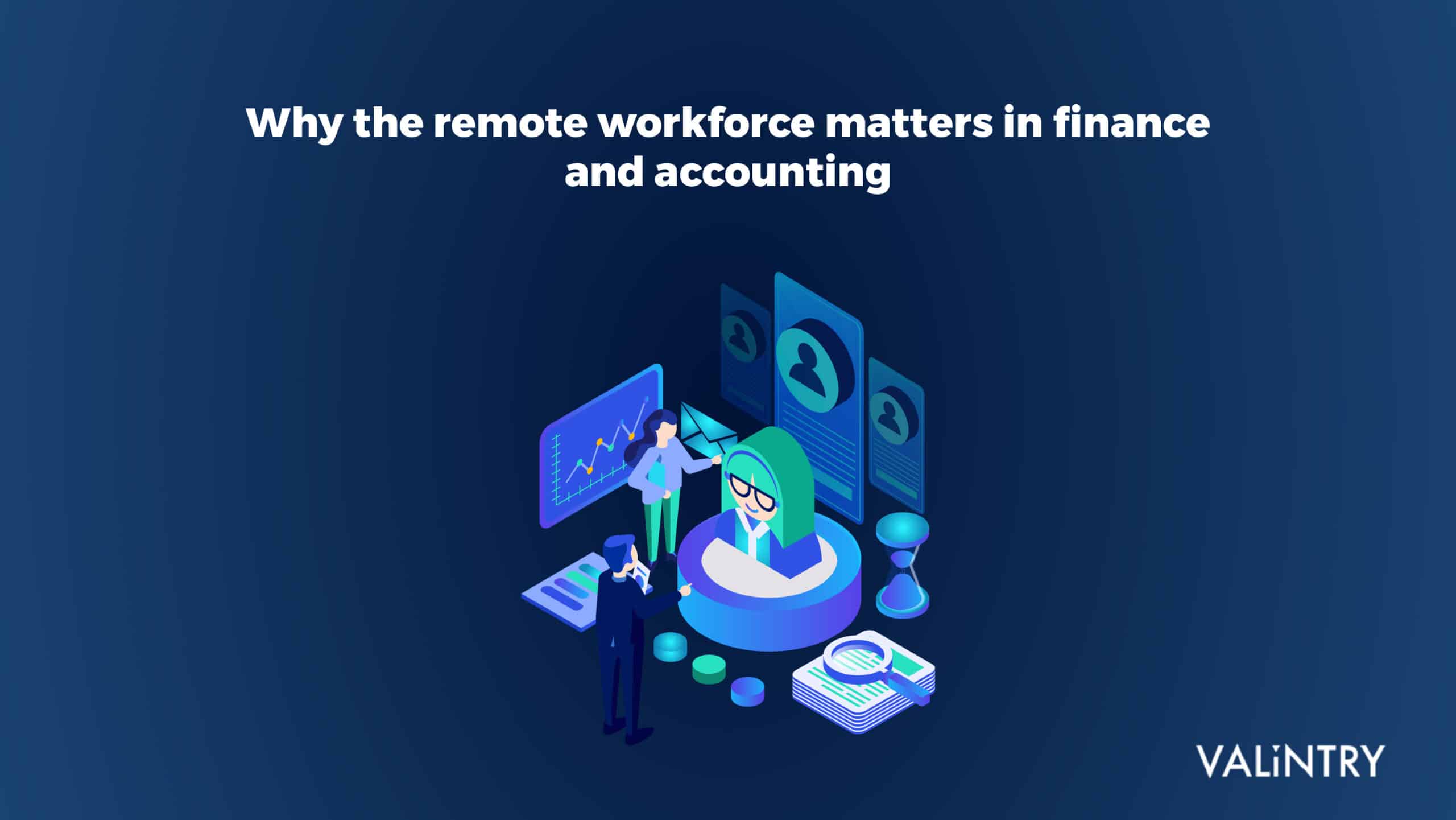
1. Access to Global Talent: With remote work becoming much more common, geography no longer has to be a limiting factor in talent acquisition. Finance and accounting recruiters can cast a wider net and tap into a global pool of highly skilled professionals. This allows for a more diverse and specialized workforce.
3. Cost Savings: Companies can also benefit from cost savings associated with a remote workforce, such as reduced office space expenses. This can free up resources for investments in technology and talent development.
Recruitment Strategies for a Remote Workforce
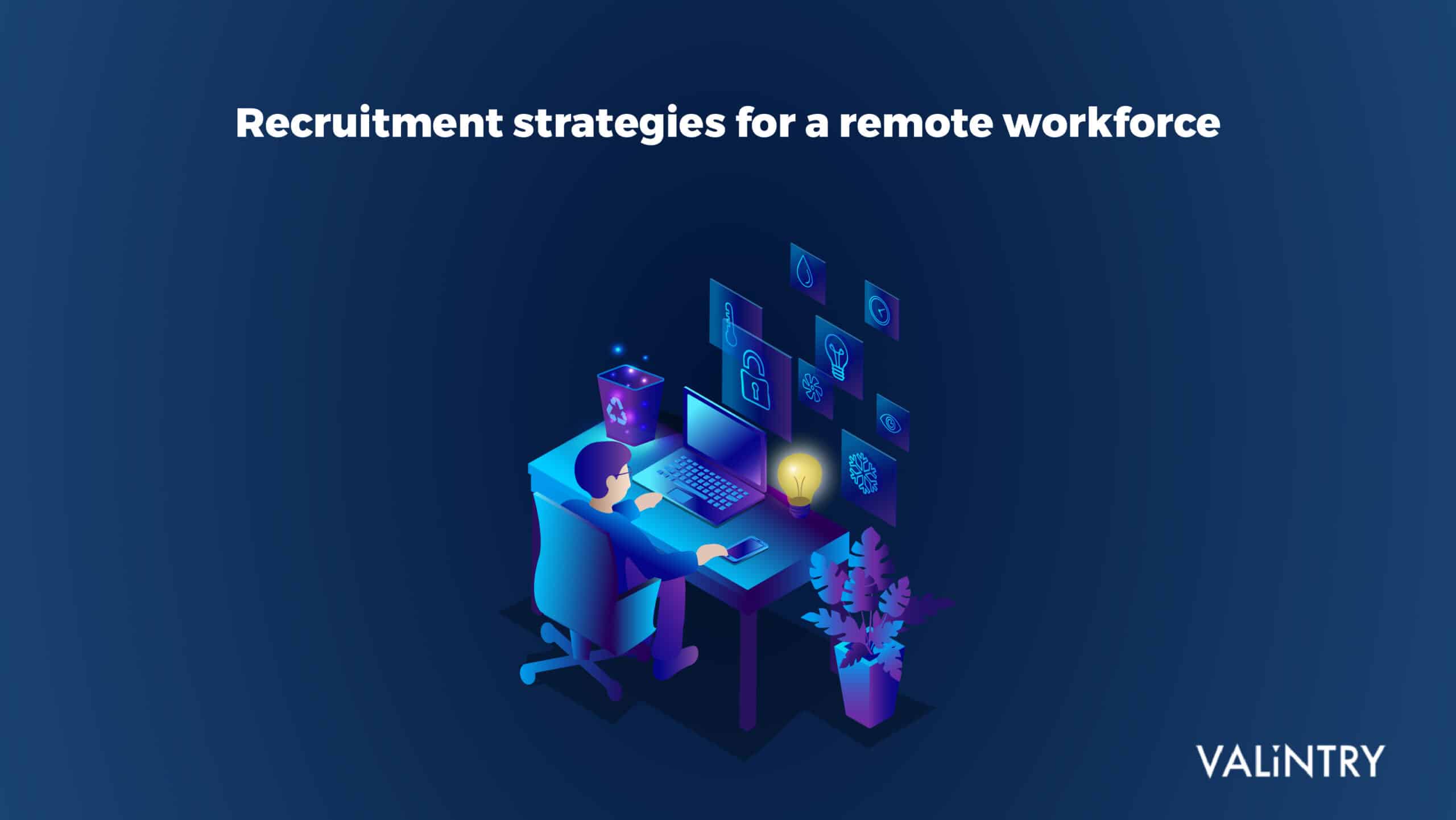
1. Assessing Remote Readiness
2. Tech Proficiency
3. Cultural Fit
4. Flexible Hiring Practices
Accounting and Finance Recruitment Trend 2: AI & Automation
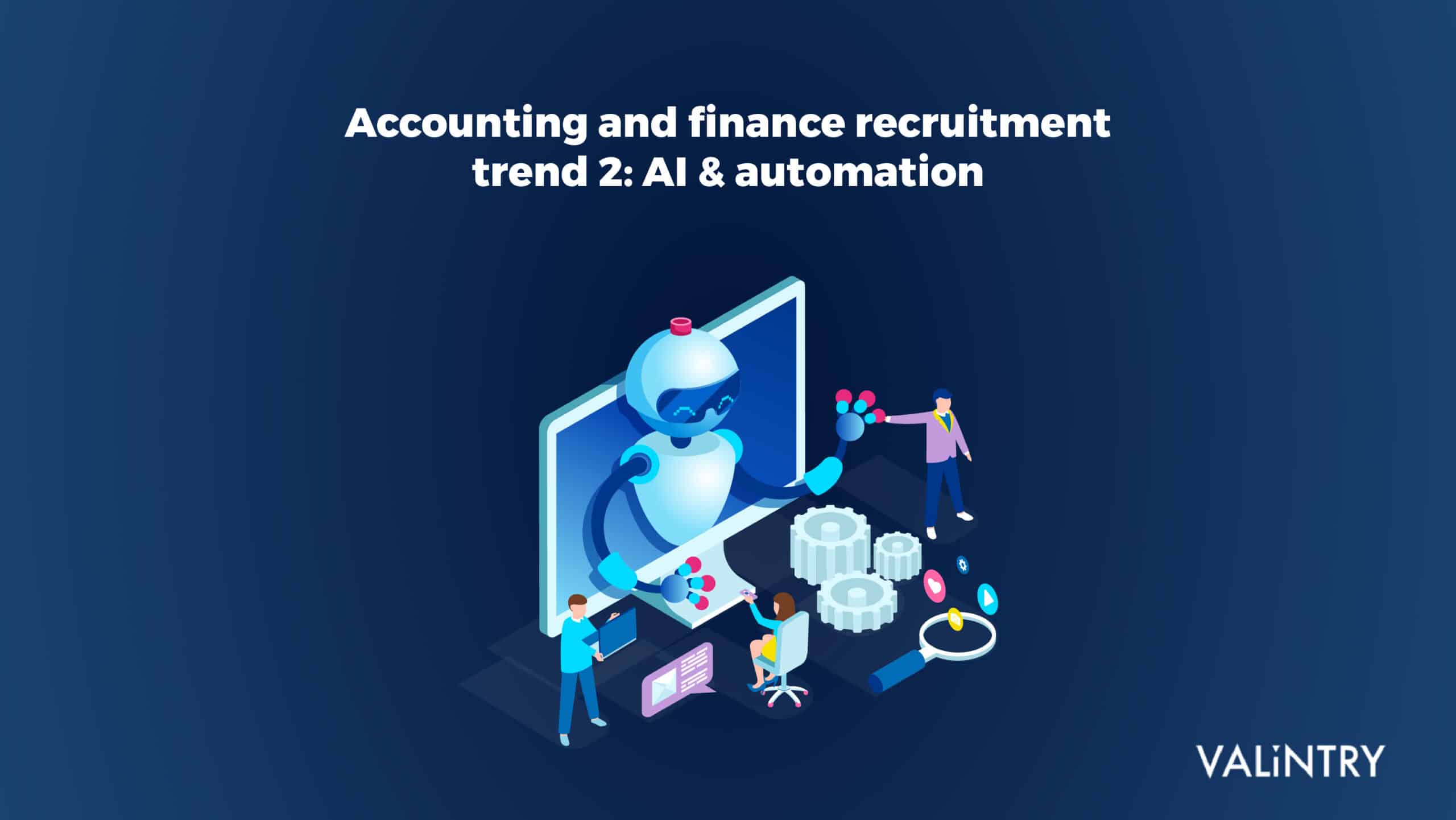
In the dynamic landscape of finance and accounting, staying ahead of the curve is not merely an advantage – it’s a necessity. As we prepare to go into 2024, one trend that continues to reshape the industry is the relentless march of Artificial Intelligence (AI) and automation. The likely impact of these technologies on recruitment in accounting and finance cannot be overstated.
Automating Tedious Tasks
Enhancing Decision-Making
Streamlining Candidate Sourcing
Personalized Candidate Experiences
Evolving Skill Sets
Accounting and Finance Recruitment Trend 3: Big Data Combined With Analytics & Forecastin
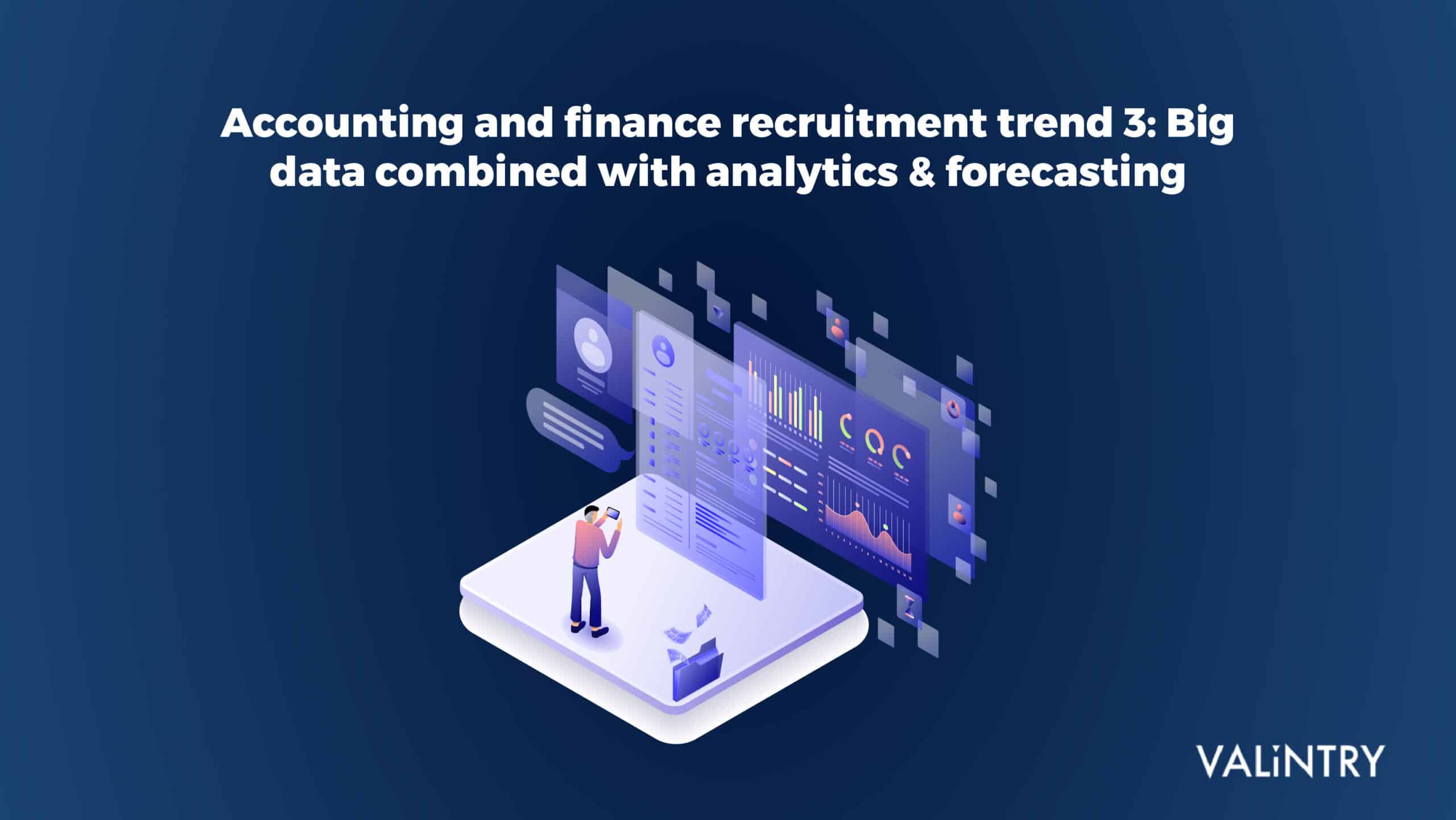
Why Big Data Matters in Recruitment

1. Targeted Candidate Search: Big Data allows recruitment professionals to identify and target potential candidates more accurately. By analyzing historical data and current market trends, recruiters can pinpoint candidates with the specific skills and qualifications needed for a particular finance or accounting role.
2. Improved Decision-Making: With access to extensive data sets, hiring managers and recruiters can make data-driven decisions throughout the recruitment process. This includes determining competitive salary ranges, identifying talent pools, and predicting candidate success in a given role.
3. Enhanced Candidate Experience: Big Data can also be harnessed to create a more personalized and engaging candidate experience. By understanding candidate preferences and motivations, recruiters can tailor their interactions and job offers, improving the likelihood of attracting top talent.
Analytics and Forecasting in Finance Recruitment
1. Predictive Analytics: Predictive analytics uses historical data to forecast future trends, including which candidates are most likely to succeed in specific finance or accounting roles. This minimizes hiring risks and enhances the quality of new hires.
2. Skills Gap Analysis: Analytics can identify gaps in an organization’s talent pool. For finance and accounting, this means recognizing which skills are in high demand and proactively seeking candidates with those skills.
Accounting and Finance Recruitment Trend 4: Utilizing The Cloud
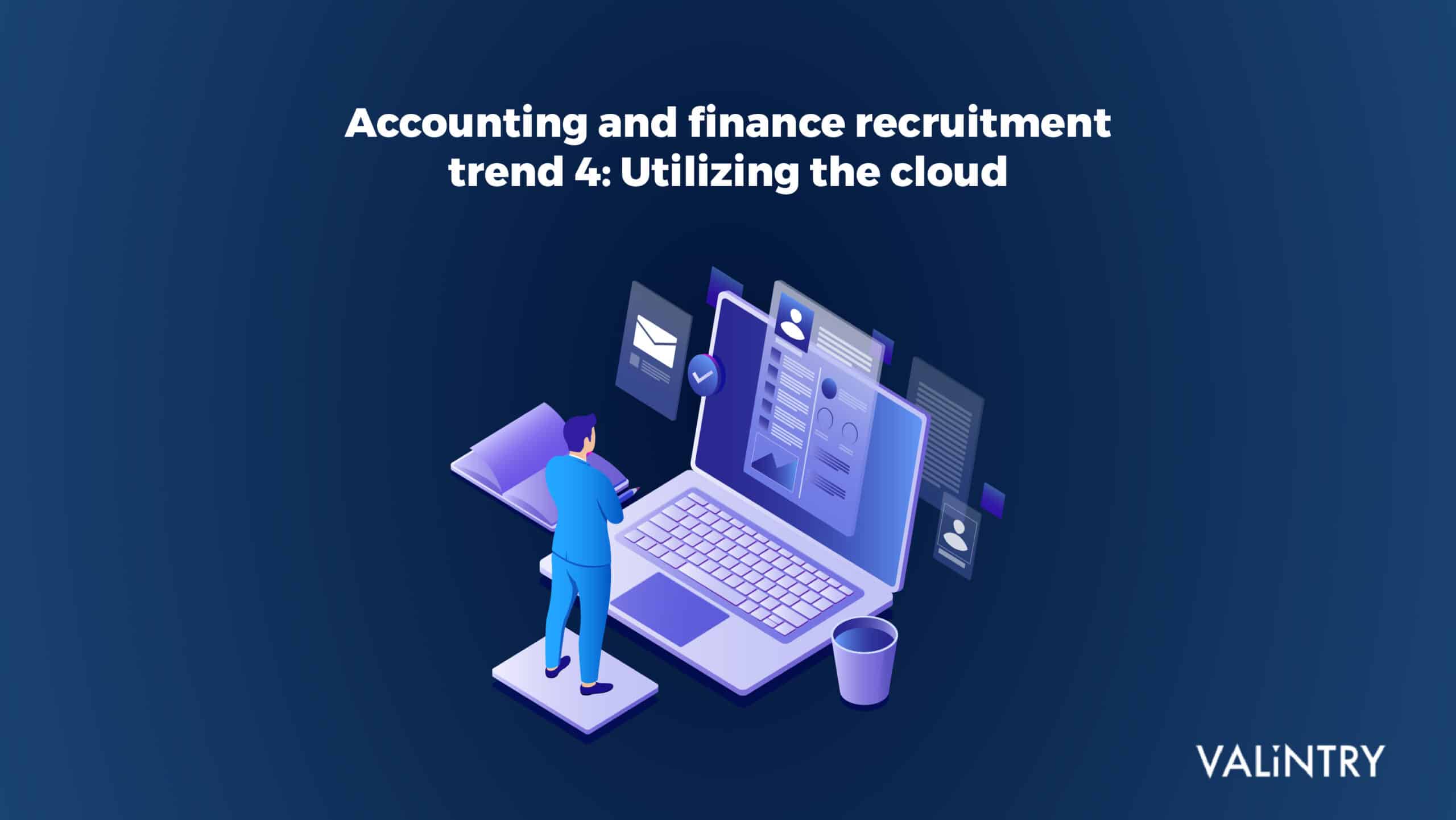
The Cloud: Fueling Efficiency and Accessibility
1. Streamlined Operations: With cloud-based accounting software, financial tasks that were once time-consuming and prone to errors are now automated. This streamlining of operations means that finance and accounting professionals can focus on strategic initiatives and high-value tasks, making their roles more fulfilling and impactful.
2. Accessibility and Collaboration: The cloud enables finance teams to access critical financial data from anywhere, at any time. This newfound flexibility is not only convenient for existing team members but also expands the potential talent pool for recruiters. Remote work becomes more feasible, allowing for the recruitment of top finance talent, regardless of their geographical location.
3. Data Security and Compliance: Cloud service providers often integrate robust security measures and compliance protocols. This can help businesses, especially in highly regulated industries, maintain data integrity and meet industry-specific compliance requirements, a crucial consideration when recruiting for finance and accounting roles.
4. Scalability: As businesses grow, their financial needs evolve. Cloud-based solutions are highly scalable, allowing companies to adapt without the hassle of extensive IT infrastructure changes. This adaptability is particularly relevant when hiring for finance and accounting positions, as the demands on these professionals may change as the company expands.
Recruitment Implications
Skill Set Evolution: The cloud has created a demand for professionals with expertise in cloud-based accounting software, data analytics, and cybersecurity. Recruiters must keep an eye out for candidates who are not only skilled in traditional finance and accounting but also have proficiency in cloud technology.
Remote Work Considerations: Remote work or at least hybrid options are now expected by many finance and accounting professionals. Recruiters should be prepared to discuss and offer flexible work arrangements to attract top talent.
Industry-Specific Knowledge: Depending on the industry, finance and accounting professionals may need specialized knowledge of cloud solutions tailored to their sector. Recruiters should seek candidates with industry-specific experience when necessary.
Accounting and Finance Recruitment Trend 5: Diverse Range Of Skills
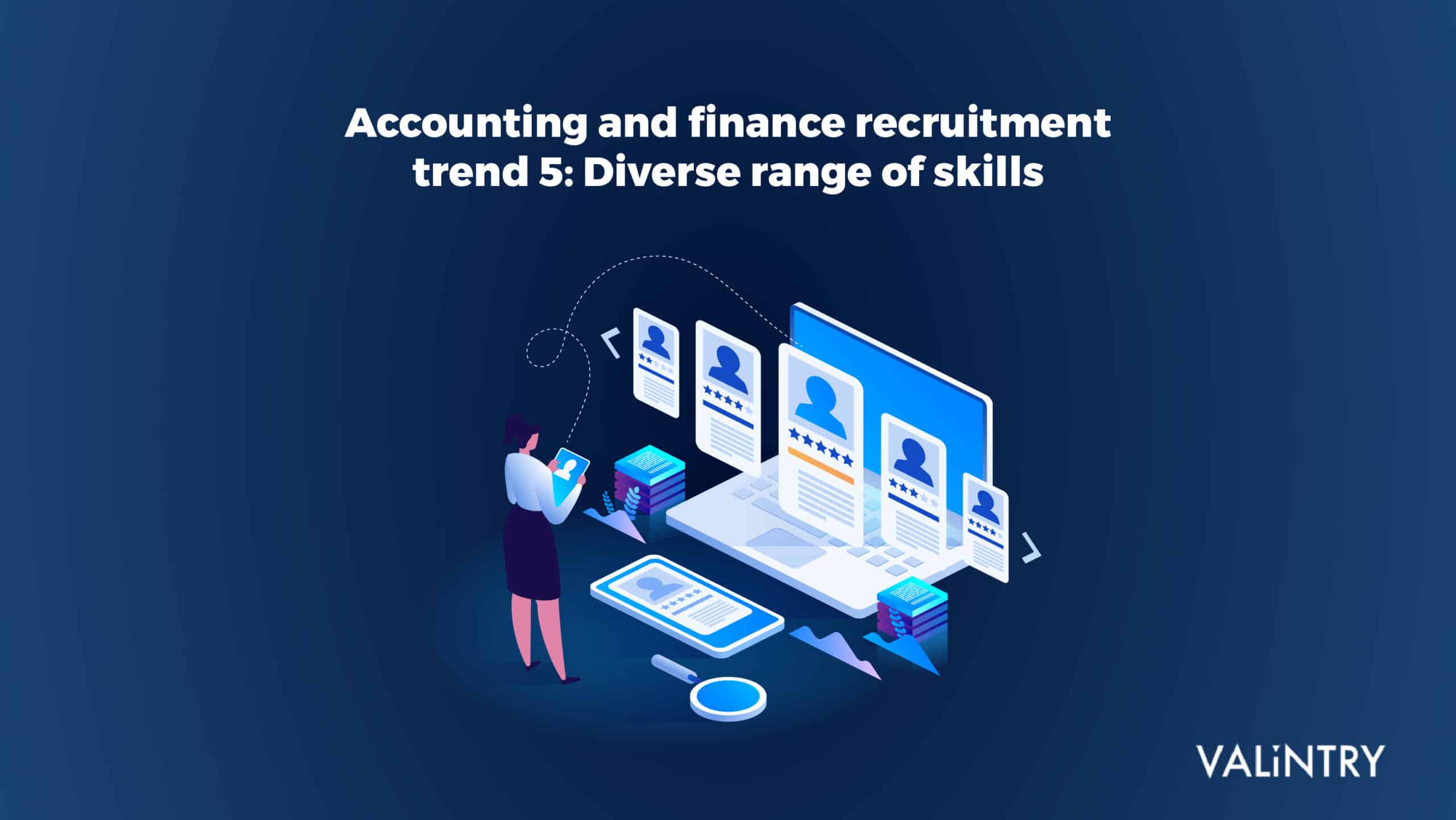
Why It Matters
The Expanding Skill Set
1. Technology Proficiency: With the rise of automation, artificial intelligence, and data analytics, financial professionals are expected to be tech-savvy. Proficiency in financial software, data visualization tools, and the ability to harness the power of data for decision-making is becoming increasingly important.
2. Adaptability: Flexibility and adaptability are crucial traits as financial professionals must navigate changing regulatory requirements and industry trends. Being able to quickly pivot and acquire new skills is a highly valued attribute.
3. Communication and Soft Skills: Effective communication, collaboration, and problem-solving skills are now integral. Finance and accounting professionals often need to explain complex financial information to non-finance stakeholders, making interpersonal skills a must-have.
4. Strategic Thinking: Beyond number-crunching, employers seek professionals who can think strategically. Understanding the financial implications of business decisions and offering strategic insights is a valuable asset.
